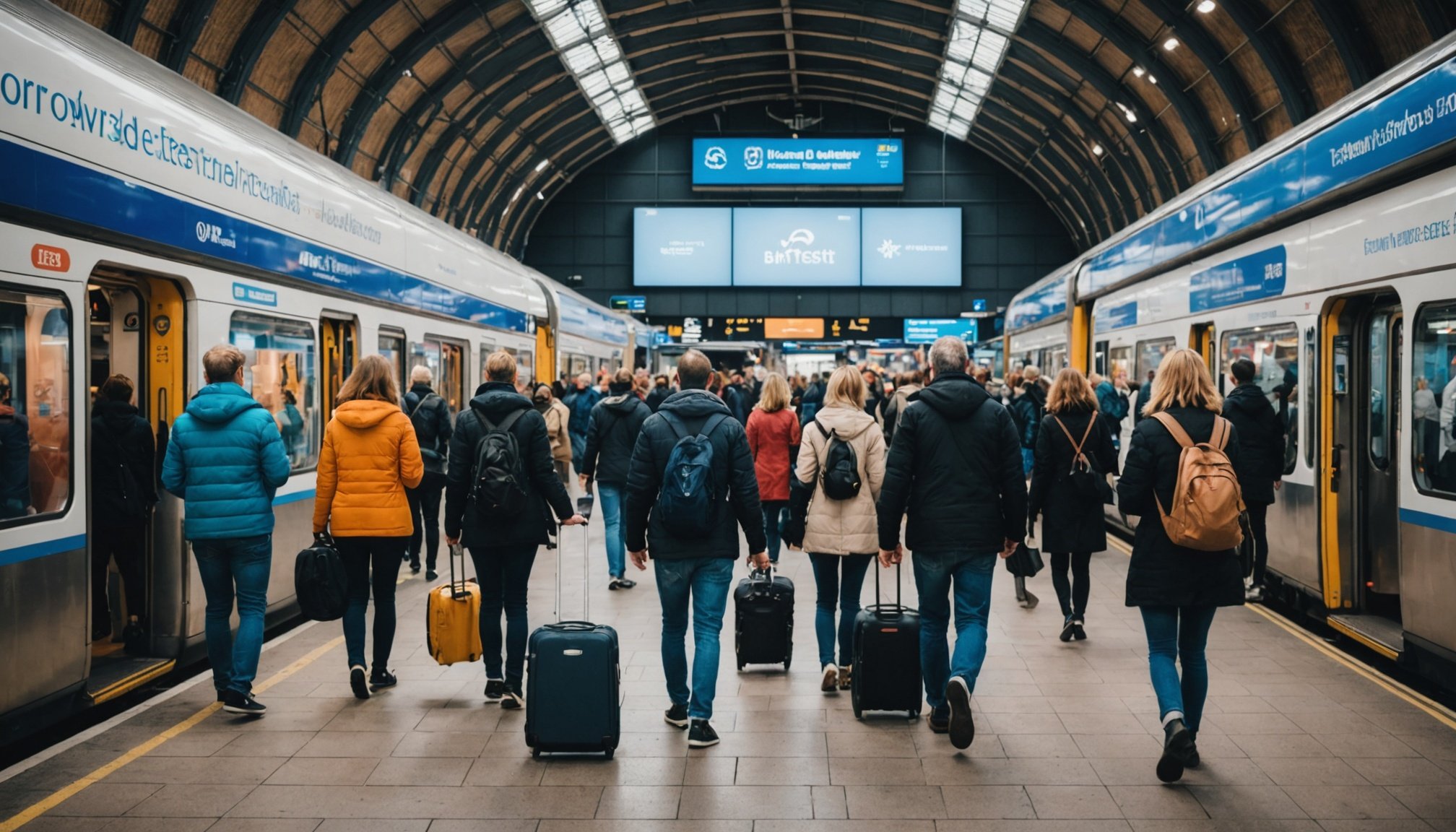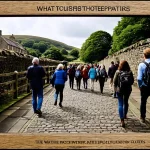Key Transformations in UK Travel Behaviour Post-Pandemic
The post-pandemic travel landscape in the UK has seen significant shifts, reshaping British tourism patterns profoundly. A notable transformation is the accelerated rise in domestic tourism and staycations. Many travellers have prioritised exploring local destinations over international ones, driven by the convenience and flexibility of home-based travel during uncertain times. This surge in domestic travel has altered UK travel trends, highlighting newfound appreciation for regional attractions and quieter destinations away from traditional tourist hubs.
Health and safety concerns play a central role in these travel behaviour changes. British travellers now exhibit a strong preference for destinations and services that prioritise hygiene and safety measures. This heightened sense of health-consciousness influences choices — from selecting accommodation with rigorous cleaning standards to favouring outdoor activities over crowded venues.
Topic to read : What Are the Most Recent Developments in UK Eco-Tourism?
Demographically, there’s a clear realignment. Younger travellers increasingly seek experiential travel, focusing on wellness and sustainable tourism, while older age groups show caution, often delaying travel or choosing less risky options. These evolving motivations underline the complexity of shifts in post-pandemic travel, shaping how the industry must adapt to meet emerging demands effectively.
Growth of Domestic Tourism and Staycations
Post-pandemic, UK domestic travel has witnessed a remarkable surge, marking a significant staycation boom. Travellers are increasingly favouring local tourism, seeking familiar yet refreshing experiences closer to home. Popular destinations include the Lake District, Cornwall, the Scottish Highlands, and the Cotswolds — areas celebrated for their natural beauty and tranquil settings. This shift highlights a clear preference for rural escapes and less crowded locations, as holidaymakers look to avoid bustling urban centres and international travel complexities.
Also read : What Are the Newest Trends in UK Tourism?
The economic impact on local communities and hospitality businesses has been profound. With more UK residents exploring their own country, small hotels, bed and breakfasts, and local eateries have experienced a welcome increase in patronage. This revival contributes to sustaining jobs and supporting the local economy, especially in rural and coastal regions traditionally dependent on tourism.
This trend reflects broader UK holiday trends where flexibility, comfort, and discovering hidden gems at home take pride of place. For many, domestic travel offers a combination of adventure and reassurance, making it an appealing and practical choice in uncertain times. Staying local not only supports communities but also reduces travel-related stress, further cementing the popularity of UK staycations.
Sustainability and Responsible Travel as Priorities
Sustainable UK travel is increasingly shaping how vacations are planned. Travelers now prioritize ethical tourism by choosing accommodations and activities that minimize environmental impact. This trend reflects a growing awareness of how tourism affects ecosystems and local communities.
Many in the travel industry are adapting rapidly. Hotels and tour operators adopt practices to reduce their carbon footprint, such as using renewable energy, minimizing waste, and promoting water conservation. These efforts respond directly to consumer demand for greener options that do not compromise comfort.
The rise of green travel trends also highlights slow travel—a style that encourages visitors to take their time, immerse themselves in the local culture, and reduce frequent transport use. This approach supports local businesses, providing economic benefits to communities without contributing excessively to pollution.
Choosing sustainable UK travel means embracing responsibility as a traveler. It not only protects the environment but also respects cultural heritage and promotes social equity. By opting for ethical tourism, you contribute to a healthier planet and more meaningful travel experiences.
Digital Health Passports and Evolving Travel Technology
The rise of digital health passports is transforming how we approach travel safety innovations. These electronic certificates verify vaccination status or recent COVID-19 test results, enabling smoother international and domestic journeys. Many airlines and border authorities now accept such digital health passports, reducing delays at checkpoints and promoting safer travel environments.
Integration of contactless processes is another key development in travel technology. Mobile apps that combine ticketing, boarding passes, and health credentials minimize physical interaction, making transportation and hospitality services more efficient and secure. For example, travelers can check in via smartphone, upload health documentation, and even access hotel rooms through mobile keys, significantly improving convenience.
However, trust and privacy remain critical concerns. Users want assurance that their personal health data is protected and shared only with authorized parties. Transparent data handling policies and adherence to privacy regulations are essential to increase public confidence in these digital travel tools.
In essence, digital health passports and the evolving travel technology landscape are creating a safer, more seamless travel experience. Through thoughtful implementation and respecting user privacy, these innovations can redefine how people move around the world.
Demand for Flexible Bookings and Travel Insurance
Travel has changed significantly, with a clear surge in demand for flexible bookings. Travellers increasingly seek options to alter or cancel plans without heavy penalties, reflecting ongoing uncertainties. Flexible cancellation policies have become a key factor influencing booking choices, providing much-needed traveller confidence.
In tandem with these preferences, travel insurance trends have shifted toward more comprehensive coverage. Policies now often include protection against pandemic-related disruptions and last-minute changes. This evolution addresses a vital need for security in an unpredictable environment.
Airlines and accommodations have responded to these new consumer demands by adapting their cancellation policies. Many now offer no-fee rescheduling or refunds, easing the stress around travel decisions. This flexibility not only boosts customer trust but also encourages bookings amidst evolving situations.
Understanding how flexible bookings and travel insurance integrate is crucial. Together they form a safety net that empowers travellers to book with peace of mind. For those planning trips, prioritizing flexible options and comprehensive insurance ensures smoother experiences, regardless of unforeseen events.
The Rise of Workcations and Blended Travel
Exploring how work and travel now seamlessly intertwine
The workcation trend has rapidly reshaped how professionals approach travel, blending productivity with leisure. This shift towards remote work travel allows individuals to maintain their job commitments while exploring new environments, reducing the divide between business and relaxation. Popular UK workation destinations such as the Lake District, Cornwall, and the Scottish Highlands have emerged, offering a mix of inspiring landscapes and accommodations equipped with reliable Wi-Fi and dedicated workspaces. These regions cater effectively to those who seek both focus and comfort.
This evolution impacts hybrid travel trends significantly. Traditional business trips are increasingly replaced by longer stays that support both work and leisure, enabling travellers to avoid the rush of back-to-back meetings. Employers are adapting by revising policies to accommodate flexible schedules and support the balance of productivity and downtime. Their evolving approach encourages staff to choose environments that enhance creativity without sacrificing connectivity.
For remote workers on a workcation, factors like ergonomic setups, access to coworking spaces, and calm surroundings are essential. By embracing these elements, travellers can optimize their work-life blend, making extended trips an enriching experience rather than an obligation. This trend fosters new opportunities for exploration while sustaining professional output effectively.
Changes in Transportation Preferences and Booking Patterns
Since the pandemic, UK transportation trends have shifted notably. Many travelers now prefer rail and road trips over air travel, reflecting a growing desire for flexibility and sustainability. This shift is evident as rail journeys have surged, with more people opting for trains to avoid airport crowds and delays. Road trips have also gained popularity, offering control and spontaneity, which align well with current travel preferences.
Travel booking patterns have evolved, too. Online and last-minute bookings dominate, driven by travelers’ cautious approach to planning. The convenience of digital platforms makes it easier to adapt plans quickly, a trend strengthened by pandemic uncertainties. This move toward last-minute bookings shows travelers’ preference for agility rather than rigid schedules.
Regarding aviation recovery, air travel is rebounding but at a slower pace compared to rail and road. Airlines are adapting by adjusting routes and offering flexible tickets to stay competitive.
Looking ahead, future projections for UK transportation highlight continued investment in rail and sustainable travel infrastructure. Enhanced connectivity and digital booking systems will likely support these trends, encouraging more environmentally friendly and convenient travel options across the UK.
Expert Analysis and Future Outlook for UK Travel
UK travel forecast indicates a steady recovery driven by a strong rebound in domestic tourism and easing international travel restrictions. Tourism industry projections suggest that visitor numbers will gradually approach pre-pandemic levels over the next two to three years. Travel experts UK unanimously highlight increasing demand for sustainable and personalized travel experiences as a key driver for growth.
Emerging markets such as eco-tourism and heritage tours present promising opportunities for UK tourism. Analysts emphasize that tapping into these niches can diversify the market and enhance resilience against future disruptions. Moreover, digital innovation including AI-driven planning tools and contactless services are expected to reshape how travelers engage with UK destinations.
Industry experts recommend investing in infrastructure upgrades and targeted marketing campaigns to attract both local and international visitors. The focus on technology adoption paired with sustainability initiatives aligns with evolving traveler preferences. These developments are expected to not only accelerate recovery but also set a foundation for long-term growth in the UK’s tourism sector. Engaging with travel experts UK can provide further strategic insights tailored to specific market segments, ensuring that stakeholders stay ahead in the evolving travel landscape.



